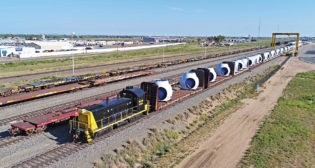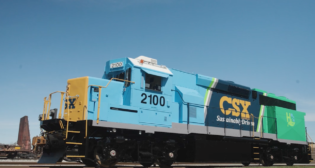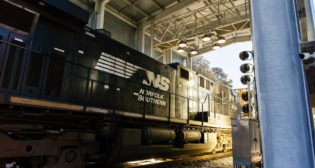
WMATA 7000-Series Cars Sidelined, Again
Written by Marybeth Luczak, Executive Editor
The Washington Metrorail Safety Commission on Dec. 29 ordered Washington Metropolitan Transit Authority (WMATA) to pull from service its 7000-series rapid transit cars; it is the second time in as many months the order has been made.
WMATA had begun a “metered release” of the cars earlier this month, following the Commission’s Dec. 14 announcement that it had “no technical objections” to the final return-to-service (RTS) plan WMATA submitted, in which no more than 336 of the 748 7000-series cars would gradually return to passenger service; the cars were to be inspected every seven days. Once those cars were running, the transit agency said it would wait for 90 days without further release “until all aspects of the new inspection cycles are fully established and any needed adjustments are made under [Commission] oversight.”
On Dec. 23, however, WMATA paused bringing on line additional 7000-series rapid transit cars.
“While I recognize the pause is unexpected, we are going to continuously evaluate data we are collecting to ensure that we are enhancing safety,” WMATA General Manager and CEO Paul J. Wiedefeld said at that time. “I feel that requiring a daily inspection is the safest course until we know more and our experts have an opportunity to review the data we are collecting with the few [eight-car] trainsets now in operation.”

Just six days later on Dec. 29, the Commission reported that it “observed and notified WMATA that WMATA returned to service certain 7000 series railcars that do not meet the inspection criteria specified in the RTS plan,” and WMATA has “committed to removing all 7000 series railcars from passenger service.”
WMATA on Oct. 18 sidelined for the first time all of its 7000-series cars—built by Kawasaki Rail and comprising about 60% of the agency’s railcar fleet—to inspect wheel assemblies in connection with the Blue Line train derailment investigation. On Oct. 12, one wheelset on car 7200, the fourth of eight on train 407, derailed (see map below).

The Washington Post reported on Dec. 29 that once the cars began returning to service, “Commission spokesman Max Smith said that in at least two cases, there had been minuscule movements in the cars’ wheels that should have led to them being pulled from service, but that Metro [WMATA] failed to take action. In all, five 7000-series cars out of 40 that were being used for passenger service had, in some way, not met the terms of the safety plan, he said.”
The Post also reported that WMATA “spokesman Ian Jannetta said the cars had been pulled from service so the agency could revise its inspection criteria.
“‘We’ve paused use to clarify the confirmation process for measurements once wheelsets are identified as requiring additional follow up within our criteria,’ he wrote in an email.
“While 210 of 748 cars in the series had been approved to return to service, Jannetta said the move was not expected to affect [WMATA’s] service levels. The transit agency is running trains about every 12 minutes on the Red Line and 20-24 minutes on other lines.”
Under the Dec. 29 Commission order (download below), WMATA must keep all 7000-series cars out of service until it provides to the Commission “a revised RTS plan describing: [t]he specific additional protections and internal oversight [WMATA] will carry out to ensure that any asset that fails a safety-critical inspection, including back-to-back measurements, is removed from and kept out of passenger service; [t]he specific additional protections and internal oversight [WMATA] will carry out to ensure that no alternative procedures or practices are introduced outside of the official RTS plan; [r]evised inspection frequency and any other criteria based on all available data, including measurements taken since December 1, 2021; and [t]he [Commission] notifies WMATA that the [Commission] has no technical objection to the revised RTS plan, and [WMATA] then implements such plan.”
The Commission noted that following any Commission “notice of no technical objection to the revised RTS plan, [WMATA must] submit any subsequent changes to said plan to the [Commission] for a 14-day review period prior to implementation for the [Commission] to determine whether there are any technical objections considering the subsequent changes.”



